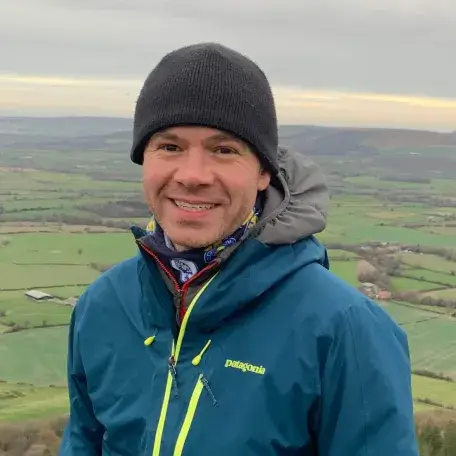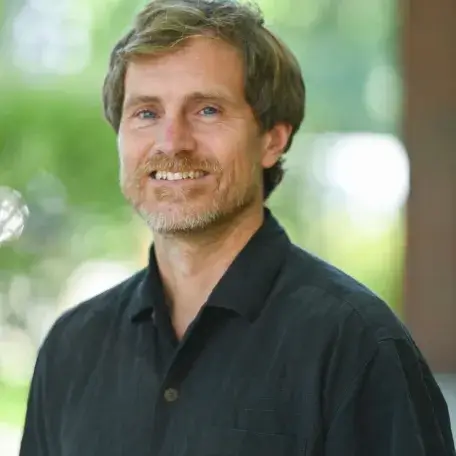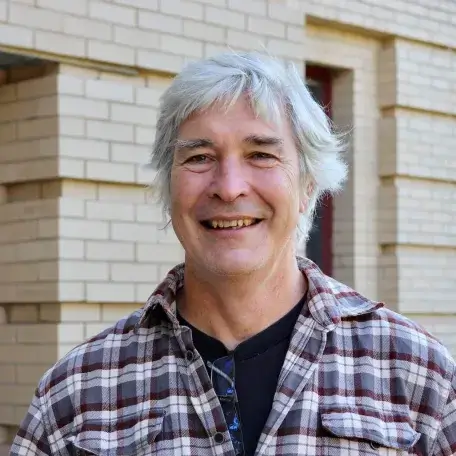Rooted in the disciplines of ecological economics at UVM and anthropology at McGill, L4E supports innovative scholarship that bridges academic and community-based knowledge. PhD Fellows earn their degrees through existing doctoral programs at each institution, engaging in a vibrant intellectual community of students, faculty, postdoctoral researchers, visiting scholars, activists, and Indigenous thinkers.
Inspired by Ecozoic inquiry - a vision of mutually enhancing relationships between human societies and the wider community of life - L4E at UVM fosters scholarship that explores economics through the lens of sustainable scale and just distribution over efficient allocation.
L4E works toward the Ecozoic era through four key areas:
- Facilitating transdisciplinary research that empowers emerging leaders;
- Building a research-to-action network that connects theory with practice;
- Engaging in advocacy and creative communications; and
- Reimagining teaching and learning across campuses and communities.
Fellows participate in a range of collaborative activities - both in person and online - including joint courses, research-to-action projects, retreats, collaboratories, workshops, creative media, and co-authored publications and presentations.
For more information about L4E, visit Leadership for the Ecozoic.
To apply for a Fellowship, go to the Fall 2026 Application.
Faculty accepting L4E Fellows include: Matt Burke, Kate Mays, and Anaka Aiyar. Please find their research statements below.
Matt Burke: Current research opportunities broadly address technologies, governance, and livelihoods for genuinely sustainable and just societies, and underscore the importance of diverse communities and ways of living in view of current social-ecological trajectories of decline. Through the Ecozoic Alternatives Research Group, we investigate alternative ecological political economies using interviews, case-based and archival research, institutional analysis, and related approaches developed through community economies research. A focus on the region of Northeastern North America will yield understandings, examples, and analyses as related to social ecology, ecological economies and degrowth, cooperative economies, and bioregions, while providing training and experience in research-to-action. Additional research opportunities in collaboration with the Institute for Agroecology will examine social dimensions and practices of rural and urban agroforestry centering on identifying and demonstrating viable livelihoods and pathways.
Kate Mays: Kate conducts research on how digital technologies like artificial intelligence can be developed and deployed in a way that aligns with public values. To this end, her studies examine public opinions about AI and related tech, with a focus on normative attitudes about AI and use, AI trust/concerns, and perceptions of AI harms vs. benefits. Kate is open to a PhD student developing their own project under the broad umbrella of human-centered AI. Alternatively and/or in addition, some future studies she plans to undertake include an investigation of public attitudes about AI tradeoffs and what it means to conceptualize AI as a public good.
Anaka Aiyar: Community-Led Conservation Approaches for an Emerging Economy
This interdisciplinary project investigates how agricultural practices, ecological change, and community livelihoods intersect in one of India’s most biodiverse yet resource-constrained regions. The team, led by Professor Anaka Aiyar, is developing a framework to strengthen linkages between sustainable food systems, conservation goals, and local well-being. Working closely with forest-dwelling and agricultural communities, the project combines quantitative data analysis and qualitative, participatory fieldwork to understand how economic pressures, land-use transitions, and conservation initiatives can better align with community priorities. Students with interests in applied economics, data analysis, social entrepreneurship, conservation, or social–ecological systems will have opportunities to contribute to applied research, data synthesis, and collaborative frameworks that promote inclusive and resilient conservation practices. Learn more about the broader initiative here: https://www.uvm.edu/instituteforagroecology/news/echoes-emerald
L4E focuses on ecological economics and degrowth. The fields are both quite broad and cover many specific topics and we will consider applications that show an interest in any aspect of ecological economics or degrowth. Under this broad umbrella, current research focuses on monetary theory and policy, sustainable agricultural production, resource management, energy transitions, political ecology, market dynamics, climate change transitions, labor, commons, rural development, land use, food systems, and many more topics. If your specific research interest does not perfectly align with the topics indicated by the faculty above, feel free to apply more broadly to L4E and explain your focus. Applications benefit from contacting a prospective advisor, so we encourage you to reach out to an SDPEG faculty member whom you believe might be a good fit for your research.
Questions can be directed to julie.starr@uvm.edu.
Post-Doctoral Associate Job Opening
The Department of Community Development and Applied Economics is seeking a Post-doctoral Associate in Degrowth to join the Ecological Economics node of the Leadership for the Ecozoic (L4E) initiative.
This project seeks to explore inflation as a liberal phenomenon by drawing upon a broad heterodox social science literature including ecological economics, ecofeminism, sociology, political economy, and degrowth. We also seek to explore the political dynamics of inflation through a post-liberal lens that aims to re-embed value through rejecting the liberal separation between economy, community, and ecology.
Please review this document for more information and to apply.
Meet Our Faculty Leads
Radio Ecozoic - Podcasts
Radio Ecozoic is a project of the Leadership for the Ecozoic Initiative, which is based at McGill University and the University of Vermont, as well as the Critical Media Lab, which is housed in McGill University's anthropology Department.
Radio EcozoicL4E Graduate Student Fellows
Ph.D. Student in Natural Resources • Gund Graduate Fellow
Gund Graduate Fellow, Department of Community Development and Applied Economics
IfA Affiliate • Gund Graduate Fellow
Ph.D. Student • L4E Fellow • Gund Graduate Fellow
Ph.D. Student • Gund Graduate Fellow
Ph.D. Candidate, Community Development and Applied Economics • Gund Graduate Fellow
Postdoctoral Fellow
Ph.D. Student • Gund Graduate Fellow • L4E Fellow
Affiliate, Gund Institute for Environment • Adjunct Lecturer
Ph.D. Student in Natural Resources • Gund Graduate Fellow
Gund Graduate Fellow, Community Development and Applied Economics
Ph.D. Student, Agriculture, Landscape and Environment • Gund Graduate Fellow


